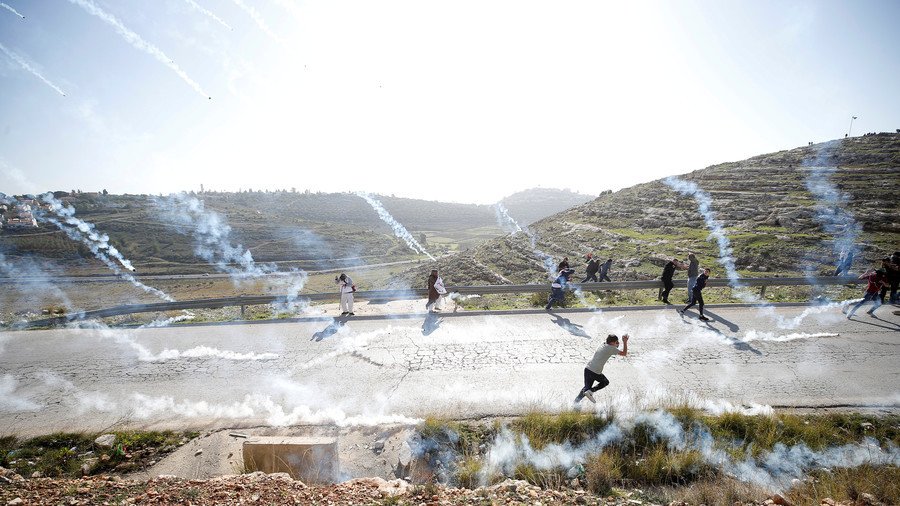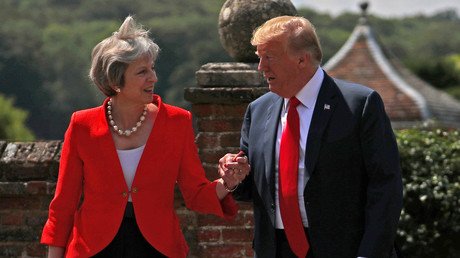Israel votes to ban critics of state and military from entering schools

Israel’s parliament has passed a law giving the education minister sweeping powers to ban any organizations critical of the Israeli state or military from entering schools.
The law, passed by the Knesset Tuesday, has been slammed by activists who argue it is a blow to democracy and free speech and serves to further delegitimize NGOs.
The first rule of occupation, don't talk about occupation. Israeli law to keep left-wing groups out of schools passes. https://t.co/1hf2P9r9Nh
— Eric Flamm (@PDXef) July 17, 2018
Under the legislation, the education minister and head of the religious-nationalist Jewish Home party, Naftali Bennett, can ban groups who “actively promote legal or international political actions to be taken outside Israel against soldiers of the Israel Defence Forces... or against the state of Israel,” from accessing schools and speaking to students.
The law, dubbed the ‘Breaking the Silence’ law, is perceived to target the Israeli non-profit whistleblowing organization of the same name. The left-wing group publishes testimony from Israeli veterans about the military’s abuses against Palestinians.
“It’s really about trying to silence and cover up what’s been going on in the occupied territories for 51 years,” said the group’s director, Avner Gvaryahu.
“This attempt to gag Breaking won’t succeed in hiding the occupation from [students], but it shows how afraid Bennett and his friends are of their own ideology. You want to shut us up? End the occupation.”
Yehuda Shaul, a founder of Breaking the Silence @BtSIsrael, said the law was “the broadest restriction on freedom of expression for political reasons ever put into Israeli law”.He said its goal was to silence criticism of the Israeli occupation. https://t.co/vKN7P05Qn4
— Josie Glausiusz (@josiegz) July 17, 2018
Bennett, who co-sponsored the bill, has been deeply scathing of the organization, accusing it of damaging Israel’s image abroad. “The reality in which organizations that undermine the legitimacy of the State of Israel and slander IDF soldiers will get to school children has ended today. Breaking the Silence crossed the line a long time ago of legitimate dialogue when they chose to slander the State of Israel in the international arena,” he said following the bill’s passage.
“As long as they act against the State of Israel and the IDF, I will not allow them to operate in the education system. You want to operate? Operate at home. In the education system, the belief in shaping the future generation will not be expressed by such voices,” he added.
Tamar Zandberg, leader of the left-wing Meretz party, tweeted her support for Breaking the Silence, emphasising that the group is “not against IDF soldiers but are IDF soldiers.”
“Instead of closing our eyes and hoping the reality will disappear, we need to simply end the occupation,” she wrote.
Free speech activists also fear that the law, which applies to anyone who criticises the Israeli government or the IDF on an international forum, could be more far-reaching.
Israel’s Knesset has approved the “Breaking the Silence” bill, banning groups that criticize Israel’s military from schools. The bill is seen as targeting @BtSIsrael, ex-soldiers who criticize Israel’s illegal occupation of the West Bank and Gaza Strip: https://t.co/ABV70wMdw7pic.twitter.com/ssVeG1zvoI
— Palestinian Rights (@US_Campaign) July 17, 2018
Israel’s Democracy Institute warned that future administrations might use the law to stifle religious or right-wing groups. “A variety of opinions should be heard in schools to expose and open children up to different views,” head of the organisation Amir Fuchs said.
Some have already expressed a willingness to break the new law. Ram Cohen, a headmaster at Tel Aviv’s Tichonet high school, said he hosted Breaking the Silence at the school last year and planned to invite the group again, even if it meant breaching the law.
“As a principal, as an educator, it is my duty to stand up and say—no more,” Cohen said. “These laws are meant to harm democracy. I shall not be a part of it. I do not agree with it and I shall object to it.”
Think your friends would be interested? Share this story!














